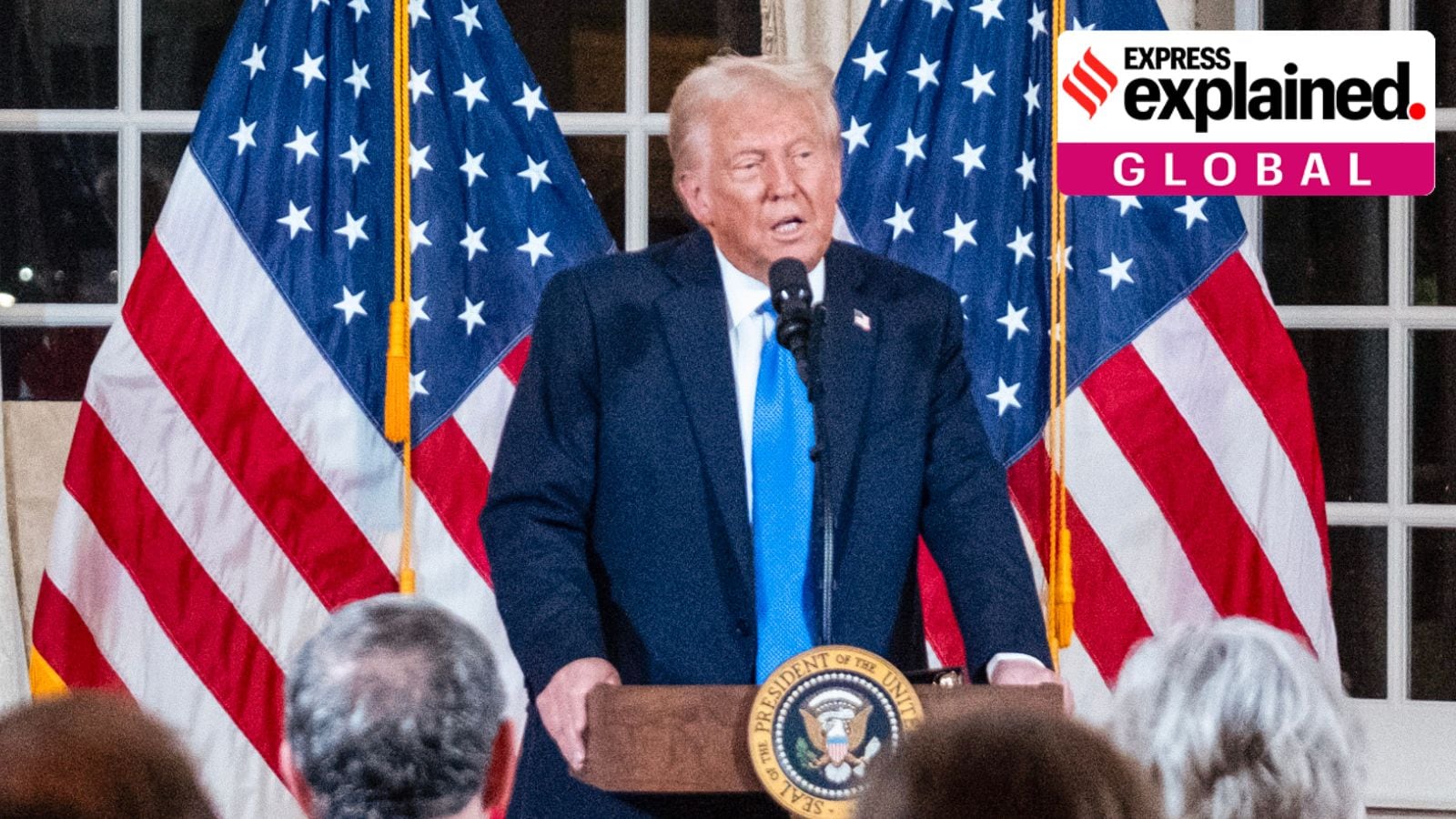Epstein Files may not become public yet, despite Trump signing their release into law. Here’s how
Technically, Attorney General Pam Bondi may opt to delay the release of the files based on the last of the aforementioned conditions: anything that 'would jeopardize an active federal investigation or ongoing prosecution, provided that such withholding is narrowly tailored and temporary.'
 On Wednesday, Trump signed the Epstein Files Transparency Act into law. (NYT)
On Wednesday, Trump signed the Epstein Files Transparency Act into law. (NYT)This week, both houses of the US Congress united to send a resolution to President Donald Trump to expedite the release of the Epstein Files, which he signed into law on Wednesday (November 19).
For Trump, the release of the files relating to the deceased sex offender Jeffrey Epstein is imperative. It has hung over his second term like a dark cloud, with a collection of emails released last week referencing the current president’s proximity to the convicted financier.
What happens now? We explain, in five points.
1 – What are the Epstein Files?
The Epstein Files refers to the collection of evidence that investigators gathered about the several criminal cases in which Jeffrey Epstein and his associates were implicated. These include transcripts of interviews with victims and witnesses, and items confiscated during raids of his properties.
While some court documents, such as the flight logs for Epstein’s private jet, have been made public, many others remain sealed. Conspiracists have long alleged that the FBI withheld the documents to protect the identities and reputations of other influential persons named in these documents.
We have explained the issues relating to the files, and why Trump reversed his position to approve their release here.
2 – What does the new Act entail?
On Wednesday, Trump signed the Epstein Files Transparency Act into law. Under the new law, all the files must be released “in a searchable and downloadable format” within 30 days.
“No record shall be withheld, delayed, or redacted on the basis of embarrassment, reputational harm, or political sensitivity, including to any government official, public figure, or foreign dignitary,” the act says.
However, the act does permit some categories of information to be withheld or redacted, provided it:
- Reveals personal information about victims
- Contains explicit description of child abuse
- May jeopardise a federal investigation or otherwise impede national security.
3 – So what is the new release expected to contain?
Under the Act, Attorney General Pam Bondi is obligated to release all matters related to the Justice Department’s investigations into Epstein and his girlfriend and co-conspirator Ghislaine Maxwell, who is currently serving a 20-year prison sentence for her role in trafficking underage girls. The records reportedly span 100,000 pages, according to a federal judge familiar with the case, NPR reported.
The act also compels the DoJ to release all material on its investigations into Epstein and his associates so far, as well as the details of his death in prison in 2019, while he awaited sentencing.
4 – Will the release of the files happen as scheduled? Or can they be delayed further?
Technically, Bondi may opt to delay the release of the files based on the last of the aforementioned conditions: anything that “would jeopardize an active federal investigation or ongoing prosecution, provided that such withholding is narrowly tailored and temporary.”
Notably, the president asked the Justice Department (DoJ) to initiate a new Epstein investigation last week into ”people and institutions”, including former President Bill Clinton, LinkedIn founder Reid Hoffman and former US Treasury Secretary Larry Summers, who have all been mentioned in the files. In such a case, the DoJ is required to specify its justifications for any redactions within 15 days of the public release of the files.
There is concern that this new investigation could be cited as a reason to delay the release of the files or withhold large sections of their contents. A CBC report cited Barbara McQuade, a former attorney for the Eastern District of Michigan, as suggesting that any material that made mention of Trump, who was once friends with the disgraced financier, could be omitted.
“There is no check on her abilities to withhold documents pertaining to Donald Trump if she deems them relevant to the investigation,” McQuade told CBC News.
5 – And how will the material be released?
There appears to be no clarity on the manner of their release, beyond the bill stipulating that the files must be made available in a “clear
The Trump Administration has so far preferred to hand over such files to the House Oversight Committee. Alternatively, it may choose to drop the files online, as it did with the documents pertaining to the assassinations of John F Kennedy and Martin Luther King Jr, according to a PBS report.
- 01
- 02
- 03
- 04
- 05






































